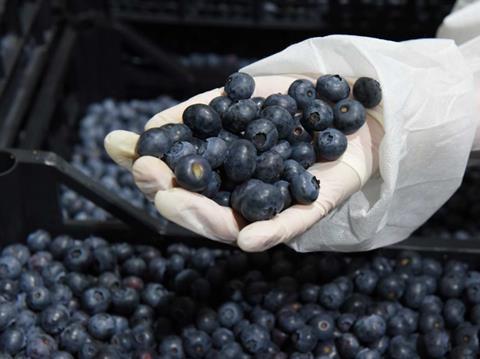Announcements followed state visit from Chinese President Xi Jinping
As part of his recent visit to Europe, Chinese President Xi Jinping’s spent time in both Hungary and Serbia during which the countries signed a number of new cooperation agreements. These included a new free trade agreement between China and Serbia, which will come into effect on July 1.

Following the visits, China’s General Administration of Customs announced it will extend market access to both fresh blueberries from Serbia and fresh cherries from Hungary. This development is significant for both countries as it marks the first fresh fruit item from Hungary to gain access to the Chinese market and only the second from Serbia, after gaining access for fresh apples in October 2023.
Serbia is one of the largest producers of blueberries in Europe with an annual output of approximately 7,000 tonnes. Its current top five export markets include the Netherlands, Russia, Germany, Poland and the UK. According to the announcement document, the fruit must meet a series of requirements, as ten quarantine pests of concern have been detected. Exporting orchards must comply with good agricultural practices and integrated pest management techniques. In addition, cold treatment is mandatory and must be carried out prior to shipment or during transit.
Similar requirements were listed for the import of Hungarian cherries as 15 potential pests were identified. Packing facilities must maintain good hygiene standards and implement measures to prevent pest recontamination, such as installing insect-proof nets. Cold treatment is also mandatory, either before shipment or during transit.
Hungary is also a significant cherry producer in Europe, however, it focuses primarily on sour cherries. It generally produces around 10,000 tonnes of sweet cherries each year, rising to 12,000 tonnes in 2018. Hungarian cherries are predominantly exported to neighbouring countries, including Austria, Slovakia, Poland, the Czech Republic, Slovenia and Germany.



